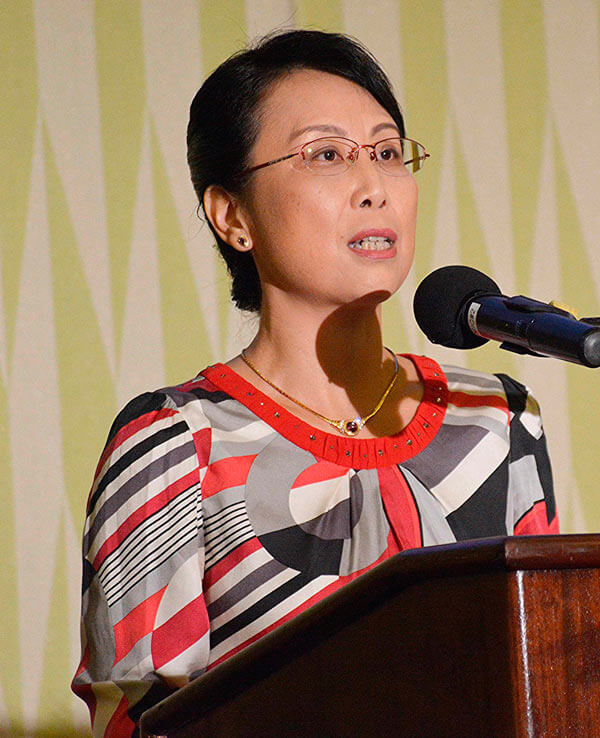A chance remark by the outgoing Chinese Ambassador to Barbados may be pointing to a swing in the economic pendulum towards a growing presence of China on the island, and possibly the wider Caribbean.
Ambassador Wang Ke is now in the process of wrapping up a three years and eight months tour of duty in Barbados and at an official farewell ceremony this week she proudly boasted of her country having ascended to the position among the top ranked trading partners with the island.
“Bilateral trade of our two countries increased for five consecutive years which made China the fourth largest trade partner of Barbados,” Wang Ke said to friends and well wishers Monday.
In fact statistics of the World Integrated Trade Solution of the World Bank shows that as of 2015 China held a favourable relationship with Barbados, exporting US$91.4 million to the island.
This figure placed China as the third highest exporter country to Barbados behind the United States at number one, and Trinidad and Tobago at number two. Canada is fourth in a table of 169 countries from which the island imports.
Barbados’ exports to China for that year pales at $12.4 million, but the imbalance is not in itself surprising as the Caribbean country is predominantly an importing nation.
What is noteworthy however is the trading inroads made by this Far East country into one of the leading Caribbean economies within 40 years of diplomatic relationships.
As a British colonial territory and since independence 50 years ago almost all of Barbados imports were sourced in the UK, the former British dominion of Canada, and the giant United States of America.
Barbados’ trade with Caribbean nations boomed and continues to expand with a better import-export balance since the countries of the region devised their own free trade agreements.
But overall this island became a major importer with the decline of sugar and a rise in its movement towards services such as tourism and the offshore financing industry.
But China’s entry into Barbados and becoming one of the dominating trading partners, and as a non-English speaking country, is remarkable.
“Barbados took the bold step of establishing relations with the People’s Republic of China on May 30, 1977,” the island’s Foreign Minister Maxine McLean noted at that farewell function.
“As a small island developing state Barbados recognizes the importance of strategic alliances to assist us in achieving our development goals in this challenging international environment,” McLean added. “I can attest to the benefits which Barbados has enjoyed as a result of this active partnership.”
That so-called ‘partnership’ which sees a fast-growing world economic power take a firm trading root in the traditional backyard of the US certainly deserves a second look.
A deal coming out of that partnership is a Bds$240 million (Bds$1 = 50cents US) loan for the rebuilding of Sam Lord’s Castle Hotel.
But that transaction is not without controversy.
While Finance Minister Chris Sinckler had marveled at the low repayment interest rate of 2.5 percent saying that such favourable terms are not easily available to even developed countries, the political opposition complained that it was further indebting this country to China.
“All the government is getting from the Chinese is a loan that you and I have to pay back, to the tune of around US$170 million, because there was no one with the confidence in this government to decide that they would go and invest in that project,” Member of parliament and Opposition spokesman on tourism, Ronald Toppin had said.



























